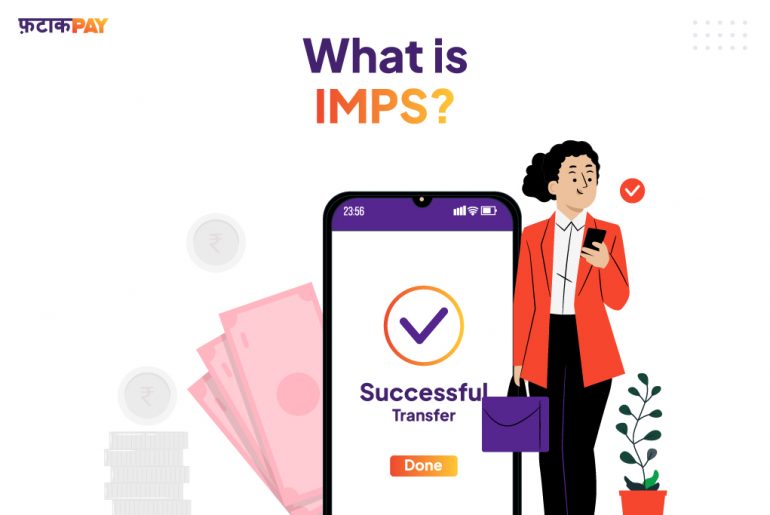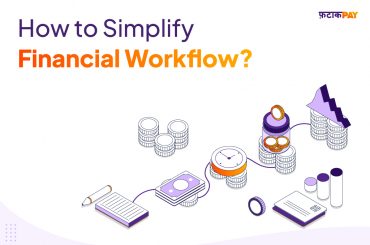Introduction to IMPS:
The National Payment Corporation of India (NPCI) provides the instant money transfer service known as IMPS. Immediate Payment Service, or IMPS, enables real-time sending and receiving of money from savings accounts. Through mobile banking and online banking, the service facilitates interbank transactions. The main benefit of adopting IMPS is that it is accessible around-the-clock, 365 days a year, making it very adaptable and reliable.
IMPS is constantly open, unlike bank branches which are closed on public and gazetted holidays. As a result, even on bank holidays, you may be sure that the money you transferred reached its intended location.
Features :
IMPS has a lot of features because it is the nation’s most popular method of fund transfers. The following are IMPS’s features:
Flexible: In many ways, IMPS is very flexible. These aspects include, among others:
IMPS is accessible 365 days a year, 24 hours a day. To deposit or transfer money, you do not need to visit the bank and stand in a queue for hours.
Multi-Platform Support: IMPS allows net banking even though it is typically developed for mobile banking.
Easy to Use: When compared to other methods of transferring money, IMPS is quite simple to use. To transfer money, all you would need is the recipient’s specific MMID and their cellphone number, which is linked to their bank account.
Fast Money Transfer: IMPS, as its name implies, is an immediate money transfer channel that enables real-time fund transfers.
A Safe Medium: Despite using the internet as a means of fund transfer, IMPS is among the safest methods. There is, however, no safeguard against human error.
Mobile alerts: IMPS makes full use of mobile banking. Both the sender and the recipient receive text messages from the bank as app alerts as soon as you transfer money to the recipient.
IMPS transaction limit:
The maximum amount that can be transferred with IMPS is Rs. 5 lakh. But it might differ from one bank to another. While the standard low limit is one rupee, The cap, nevertheless, could differ from bank to bank.
IMPS charges:
For amounts between Rs. 10,000 and Rs. 5 lakh, the standard IMPS fees range from Rs. 2.50 to Rs. 25.
What is MMID?
You will need a Mobile Money Identifier in order to complete an IMPS transaction.
Customers receive a seven-digit number when they sign up for mobile banking.
An MMID is required for both the remitter and the beneficiary in order to complete an IMPS transfer.
You can transfer money without making any mistakes or encountering any problems by using the mobile number and the MMID.
Each of the customer’s accounts will receive an MMID. By using the MMID allotted, you can choose the account for the fund transfer.
You can send transfers without making any mistakes if you use the MMID and the beneficiary’s mobile number together. The money is not transmitted if either number is entered incorrectly.
By logging onto your mobile banking app and selecting the “Know your MMID” option, you may check your MMID online.
To track your IMPS reference number, you can SMS the number your bank has provided. Your MMID will be delivered to you by SMS.
Benefits:
Accessibility: You can use the Immediate Payment Service anytime, anywhere if you have a mobile phone with you.
Always Available: The major benefit is that it is always available. They can transfer money at any time of day, including on weekends and holidays, which is convenient.
Instant Fund Transfer: The beneficiary’s bank account receives money instantly through Immediate Payment Service. The funds will be transferred out in less than an hour, even if there is a technical problem.
Does Not Need Confidential Information: These transactions carried out through mobile banking do not require the account number and IFS code of the beneficiary. Only the beneficiary’s MMID and mobile number are needed. However, IMPS online fund transfers require the beneficiary’s complete bank information.
Cheap: Except UPI, IMPS is the most affordable method of fund transfers. The fees for fund transfers range from Rs. 2.50 at the lowest end to Rs. 25 at the highest. Even though NEFT has comparable fees, IMPS has the distinct advantage of transferring money in real time.
Additional links:
Thank you for reading our LinkedIn article! We hope you can apply these learnings in real life 🙂 Here are some other blogs/LinkedIn articles for you to check out.
https://www.linkedin.com/pulse/what-nbfc-fatakpay/?trackingId=D2%2B1JHBR2HJnAYNnR2K8Rw%3D%3D
https://fatakpay.com/blog/what-is-credit-risk/
https://fatakpay.com/blog/mutual-funds-vs-etfs/
About FatakPay:
FatakPay provides virtual credit facilities for all. It’s available on your phone and caters to your everyday needs in both online and offline formats. Payments are done seamlessly through UPI/QR codes. The solution provides an almost zero cost, free, quick, transparent and secure way to transact in a multilingual format with a Scan Now, Pay Later facility and easy repayment options.
Link to FatakPay App: https://play.google.com/store/apps/details?id=com.fatakpay
Link to the Website: https://fatakpay.com/







